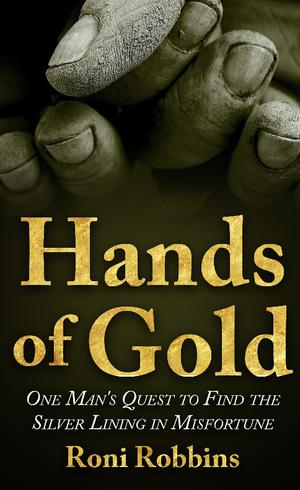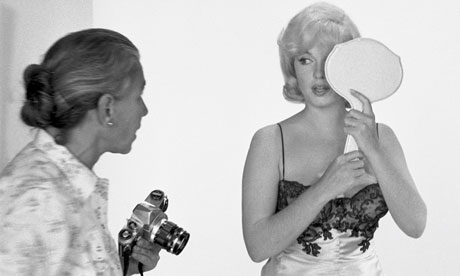
Memory is fickle. We’re learning that it’s a spectrum, one end of which is fiction.
Writer Roni Robbins thought she had the makings of a biography when she began listening to tapes her late grandfather recorded toward the end of his life. An immigrant, a husband, father and a breadwinner who suffered from a chronic, life-threatening illness, his story reflected the 20th century Jewish experience in America.
Robbins eventually decided she would have to flesh out the grandfather whose life story was on the tapes. To tell the larger truths of his life, she’d have to turn his story into fiction. And so Sam Fox was born. And the resulting book, “Hands of Gold,” became both a work of love and a work of imagination.
I asked Robbins, a longtime friend and colleague, a few of the questions I had after I read “Hands of Gold.” Here is our interchange:
You based the book on recordings that your grandfather made about his life. At some point you decided to expand his recorded memories into a work of fiction. At what point in the process did you make that decision and why?
Roni Robbins: The change from my comfort zone of non-fiction to fiction stemmed from the initial feedback I received about the first draft of a potential biography and the need to protect the privacy of those whose lives might be depicted in the story. If memory serves me correctly, and you can set me straight if I’m wrong, you were one of my early draft advisors. You suggested I add more details so it wouldn’t sound like an oral history. I went back to the drawing board, changed names, made up dialogue, and added drama.
To flesh out the story, you created incidents and a number of characters. Your grandfather was your grandfather. Was the uncle who died in his 40s of leukemia an actual person? That was a sad story.
Yes, he was a real person who died of leukemia as I described. That was in the original draft, but I took time to flesh out his character in the novel and describe what it might feel like to lose a son, a father, a brother. I took time to develop other characters too and how they interacted with the narrator so the reader gets a full picture of his family life and become vested in the story line and the characters’ fates.
Sam Fox lived with tuberculosis nearly his whole life. Same for your grandfather? I always had the impression that TB led to an early death. Sam was nearly 90 when he died. Were you surprised that it could be a chronic illness lasting across decades? How did he keep from spreading it, since it’s very contagious?
My grandfather was a clinical trial patient for an experimental TB treatment, streptomycin, which saved his life and others’. It is still used today. I mention his near-death experience with TB at a young age and how he spent so much time away from his family because of how contagious it was. He met his daughter through a hospital window, in fact. I really didn’t know that much about TB until I started researching it for this book.
Was Sam’s voice in the book the same as your grandfather’s? Sam was a colloquial, down-to-earth speaker, who dropped Yiddish words into his sentences. Very salt of the earth. Was your grandfather like that too? (“Where’s my chutzpah when I need it? What a putz am I. Cockamamie idea anyway.”)
I tried to mirror my grandfather’s voice from the tapes in Sam’s dialogue and self-talk. But I never studied his speaking style while he was alive. I knew my grandparents often used Yiddish when they didn’t want us grandchildren to know what they were saying or Yinglish when they didn’t know the proper English terms. Or maybe they created their own language combining the two. Their children understood it.
If Yiddish was the native language of our European ancestors, I thought I should incorporate it into the dialogue and it might help the reader relate, especially if they grew up in similar environments. Also, I took Yiddish in Hebrew High School on Long Island, knew it was making a comeback in some circles, but was otherwise becoming a dying language. So why not try to perpetuate the language in a way that felt natural for the main character?
Many readers have told me they didn’t know there was a glossary in the back of the book until they finished it, so they either tested their memory of Yiddish used by parents/grandparents or were still able to follow the storyline based on the context even if they didn’t know what certain words meant.

Sam’s Judaism was kind of a flexible American immigrant Judaism. He liked reading Jewish books and the Torah. I don’t recall how strictly they kept kosher. Keeping his family Jewish was important. But he worked on Shabbat. And like Tevye, he was constantly arguing with God. What kind of Jew was Sam in your eyes?
Yes, I had Tevye in mind when Sam argued or spoke to God. I always considered my grandfather Orthodox so that’s who Sam became. Perhaps he became modern Orthodox. Growing up, Sam’s mother was very concerned he would eat treif on his travels and certainly he would lose his Judaism if he went to America. Hannah’s family also expressed this concern. I describe how one family member came to America, but not finding enough Yiddishkeit, returned to Europe, and perished in the Holocaust, like many in Sam’s family, too.
Sam and Hannah had a secret they kept until almost the end – that she was pregnant when they got married. Was this fiction? It must have been a fairly common thing. Why did they feel such shame about this?
Hannah was married previously to a cousin; so was my grandmother. We know that was common in Ashkenazi circles to avoid marrying outside the religion in Europe, and why we are at higher risk for certain cancers. I definitely played with the facts to make the story more dramatic. The shame came from not knowing whether the father was Sam or the cousin.
The story ends close to our time, certainly well into your and my adult lives. Yet the vast majority of it is history to us: the Old Country, immigration, the Depression, big families, life before penicillin and before the polio vaccine, Yiddish as a first language. All well before our time. What do you think about this world that you conjured up, a world that was before your time?
I did a lot of research to capture the history as it might have happened and how the events of the times impacted Sam and his family. Perhaps I romanticized it a bit, but I tried to be as historically accurate as possible. I wanted the reader to understand and appreciate how tough our ancestors’ lives were and the sacrifices they endured so we could have relatively privileged lives in America.
Are you thinking of writing another book?
Yes, I’m starting to write another novel based on my father’s life, which will tie into “Hands of Gold.” My dad, who died in March, didn’t leave cassette tapes but I have lots of memories and newspaper clips about his career to draw from. He was a very intelligent but complex person, using skills developed as part of his military training to influence space exploration. Later, he built a rare historic business that began in a suburban New York garage and grew it into an internationally recognized craft based in the foothills of the Western North Carolina, an area known for its arts.
Like Sam in “Hands of Gold,” Stuart Kahn was your classic no-nonsense provider who worked with his hands, relished rolling up his sleeves and getting dirt under his fingernails.





 I’ve heard the story before. I know how it ends. Yet something — curiosity, desire to learn, duty — drew me to the recent biography of John Lennon, John Lennon, by Philip Norman.
I’ve heard the story before. I know how it ends. Yet something — curiosity, desire to learn, duty — drew me to the recent biography of John Lennon, John Lennon, by Philip Norman.








